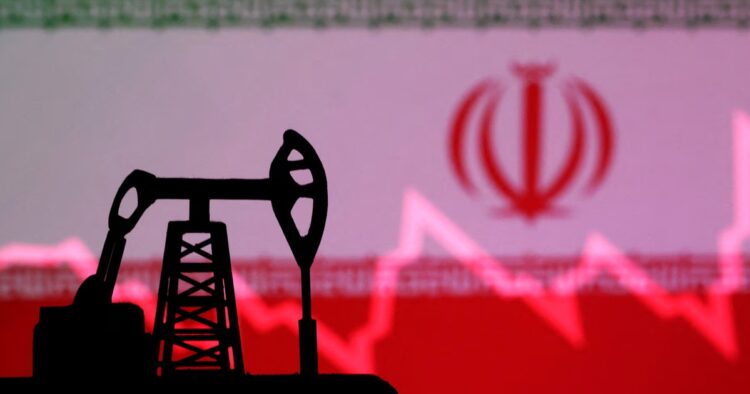Iran launched a significant missile and drone strike on Israel on Saturday night, marking an unprecedented move. Predictions from analysts said that this attack, which Tehran claims was retaliation for Israel’s suspected strike on the Iranian consulate in Damascus earlier in April, is unlikely to result in immediate and drastic sanctions on Iran’s oil exports by the Biden administration. The analysts cite concerns about potential impacts on oil prices and the delicate relationship with China, a major importer of Iranian oil.
Following the attack, House Republican leaders criticized President Joe Biden for what they perceive as a failure to enforce existing sanctions against Iran. They announced plans to introduce bills aimed at strengthening sanctions on Iran in the coming week.
Representative Steve Scalise, the No. 2 House Republican, voiced concerns that Iran’s oil revenues were being used to fund terrorist activities, calling for strict measures against Iran’s oil trade.
The Biden administration faces a complex challenge in responding to Iran’s actions. While there is political pressure to penalize Iran and deter future attacks, there is also a need to avoid escalating tensions in the region, keeping oil prices stable, and maintaining a positive relationship with China. China is the largest buyer of Iranian oil, and any influential sanctions could strain diplomatic ties between the U.S. and China.
Despite previous efforts to enforce sanctions on Iran’s oil sector, analysts estimate that Iran’s oil exports have remained relatively high, reaching close to pre-sanction levels. This underscores the difficulty of effectively curbing Iran’s oil trade through sanctions alone. The potential impact on gasoline prices adds another layer of complexity, particularly in an election year, where economic factors are closely scrutinized.
While some experts argue for stricter enforcement of existing sanctions, others caution against actions that could destabilize U.S.-China relations or exacerbate tensions in the Middle East.
Moreover, the Biden administration maintains that sanctions on Iran remain in place and that efforts to pressure the Islamic Republic continue. However, the administration faces challenges in finding a balance between punitive measures and broader diplomatic considerations.
The China factor looms large in discussions about sanctioning Iran’s oil exports. China’s substantial reliance on Iranian oil, coupled with the use of covert shipping methods to evade detection, complicates efforts to interrupt Iran’s oil trade.
Any significant action against Iran’s oil exports would likely involve measures targeting entities involved in this trade, potentially including Chinese entities, but the extent of such actions remains uncertain.
Iran’s weekend attack on Israel has reignited debates about sanctions and regional stability. While there are calls for tougher measures against Iran, the Biden administration faces constraints due to concerns about oil prices. Also along with this, the relations with China, and the broader geopolitical context. Finding a balanced response that addresses security concerns without exacerbating tensions will be a key challenge for U.S. policymakers in the coming days.

















Comments